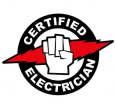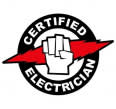They are very professional
Best electrical lighting specialists in Olympus AH, Gauteng
Top electrical lighting specialists near you
Browse the best electrical lighting experts and compare ratings and reviews.
Great team, professional, neat, timeous and well priced. A small job treated with the expertise of a large operation
great workmanship and fairly priced I don't know what I would have done with power tripping over the holidays Thanks Mike
these guys are amazing! Quick, effective and professional service. Well done Mike and your team
good service all round very reliable team
very reliable electricians they are trustworthy and know what they are doing Thanks Mike for the great service
Hire the best electrical lighting specialist
Search Uptasker for the best electrical lighting specialists - compare ratings and read reviews
Why is there a need for electrical lighting specialists?
Light is an essential part of our lives, affecting both our leisure and working activities. Apart from the obvious fact that correct lighting is essential in environments where there is no natural light coming in from windows, we spend hours every day concentrating on detailed work or using computer screens which can have adverse effects on our productivity and health levels through eye strain, headaches, fatigue, and emotional wellbeing, especially if the lighting conditions are poor. For example, continuous computer use often results in computer vision syndrome (CVS), a form of eye strain which includes hazards such as double vision or blurred vision, so specialist lighting is required to prevent this. Outdoor illumination for areas like gardens, pools, patios and pathways is essential for enhancing safety, making the area both usable and welcoming, and adding an element of security. Considering all these different requirements, it is clear that a lighting specialist is the best professional to advise on lighting needs.
What is a lighting specialist?
A lighting specialist is a trained professional who has the knowledge, qualifications and skills to plan, design, and install lighting systems within different environments and for a variety of needs. In design projects, these specialists may work alongside other professionals such as interior designers, electricians, architects and private clients to create lighting solutions suitable for the purpose, budget, and style of the project under construction.
What are the main tasks of a lighting specialist?
The responsibilities of a lighting specialist vary widely, depending on the project and the client. They may be required to conduct site visits and surveys to assess the existing lighting conditions and new requirements, design or develop lighting plans, layouts and proposals to meet the project objectives and specifications, and prepare drawings, calculations, and specifications using various specialised software tools. Additionally, they may be tasked with selecting and sourcing appropriate light fixtures, fittings, controls, and accessories from different suppliers and manufacturers. Their remit will usually include the preparation of cost estimates, schedules, and contracts for lighting projects, as well as planning and overseeing the installation, testing, and commissioning of approved lighting systems. They will provide technical support, troubleshoot any installation problems and may be required to oversee the ongoing maintenance of such lighting systems. Their responsibilities may extend to the evaluation and monitoring of the future performance, energy efficiency, and quality of the lighting systems installed.
Lighting specialists are employed in a wide variety of environments
It would be a fair statement that lighting is not a “one-size-fits-all” setup, and there is a wide variety of electrical lighting options available, including halogen, fluorescent, CFL, LED, incandescent, accent lighting, light emitting diode and tungsten halogen, as well as solar-powered systems.
Lighting required in shopping malls, for instance, is entirely different to that required in restaurants, where a softer light ambience is more relaxing and enhances any dining experience, whilst still allowing the diners to read menus easily. Different types of lighting are available, depending on the requirements of the client, whether it be spotlighting, track lighting, concealed lights and display case lighting in retail spaces, accent lighting and adjustable spotlights for highlighting artworks and special features of any design to attract a focal point of interest. Restaurant kitchens, for instance, require good lighting that does not emit excessive heat in an already hot environment. A well-planned illuminated area considers factors such as safety and security, whether it be indoors, such as in stairwells and parking garages, or outdoors on well-lit pathways and parking areas. One must also factor in the need for emergency lighting systems in a fully comprehensive lighting plan, as well as the adaptability of the lighting design for future developments. Careful planning at the outset will result in long-term cost savings, with energy-efficient solutions, designs which reduce constant maintenance, and durability of the light fixtures themselves against environmental factors. In commercial chains, the overall lighting design needs to be uniform throughout the different stores to reinforce the brand’s visual identity and secure customer loyalty through visual advertising, therefore furthering the goals of the business. In all these different spheres, lighting specialists work within regulated safety and building codes, whilst also considering energy efficiency.
Enhance your operational energy and employee efficiency costs
Unfortunately, lighting can play a big part in the operational costs of any business and optimising energy efficiency is a key factor when selecting lighting, including the use of energy-efficient solutions, such as LED technology and smart lighting controls. Task lighting, glare reduction and unfluctuating illumination throughout the entire working area are essential elements in maintaining the overall health and productivity of employees. Lighting specialists design and install lighting suitable for offices, meeting rooms, and training rooms which are adaptable to the different functions carried out within these areas. As such, lighting in office buildings must allow for a variety of different jobs which are carried out within these buildings.
How to find the right electrical lighting specialist for your needs
It may not be an obvious first choice, but going online and using a search site such as Uptasker may be your best bet in finding the right specialist in this field. Uptasker provides listings of many different categories of specialists per geographical location, which is a definite time-saving bonus. It is advisable to check online ratings and customer reviews to put your mind at rest on quality of service, timelines and reliability, and check their portfolios of previous work, particularly on major projects. Uptasker provides access to this information as it becomes available, together with “one-click” links to suppliers’ websites, if available, which is a definite advantage. You could always go the route of checking the Online Yellow Pages, house and home magazines and renovation and building publications, but searching online through Uptasker is far more efficient, and gives you a wide range of different specialists available.
Top electrical lighting tips

Whatever your lighting project might be, and whether it is for private, business or commercial use, your best option would be to utilize the services and expertise of a specialist in this field. Not only will you have access to experienced and expert advice, but you will also have the convenience of a specialist who can design, source, cost and install the lighting fixtures required to fulfill your needs. Should the system prove to be problematic for any reason, this specialist will find the source of the issue, and be able to find a solution since he will have installed it initially, thus saving expensive electrician costs from scratch. For more tips, see our electrical lighting specialist articles.
Read Electrical Lighting articles









